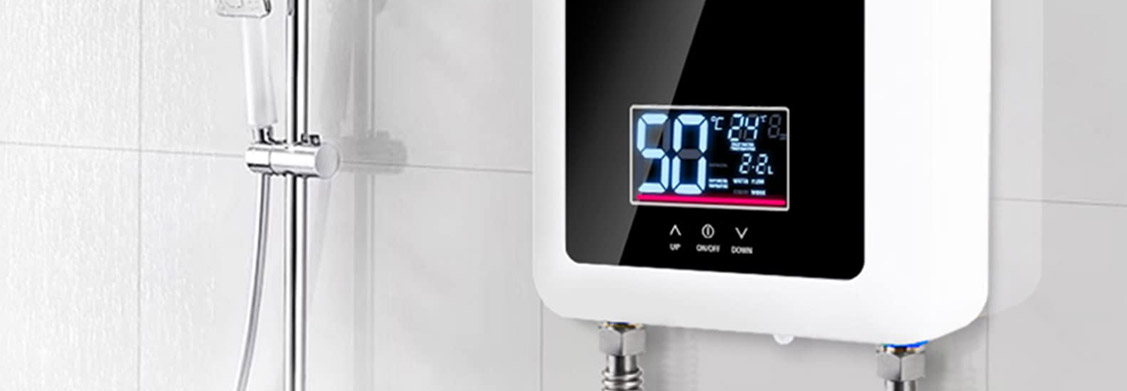Also called demand-type or on-demand water heaters, tankless water heaters can be extremely useful for households. One big reason is that they don’t cause standby energy losses, which is a common issue with tank water heaters. Besides this, they provide hot water only when needed. With such features, you can save big on your energy bills.
Water is heated instantaneously in tankless water heaters without the need for a storage tank. When you turn on the hot water knob, water flows through the unit’s heat exchanger. The burner inside it heats the water, resulting in a constant supply of hot water. With a tankless water heater, you won’t have to wait for water to fill up in the storage tank.
There are several things you’d want to consider to get the right tankless water heater. Here we’ve listed some of them:
1. Flow rate
The flow rate of a tankless water heater is the amount of hot water it can produce per minute. It’s important that you choose a unit with an appropriate flow rate. This will allow the water heater to meet the hot water demands of your household.
A higher flow rate is needed for larger households or homes with multiple bathrooms. A water heater with a lower flow rate is sufficient for smaller households with fewer hot water needs.
2. Size of your household
When choosing a tankless water heater, this is among the most important factors to consider. This includes the number of individuals in hour home as well as their hot water usage habits Based on these two key factors, you can determine the size of your tankless water heater. The higher the demand for hot water, the larger the tankless water heater you’ll need.
Let’s consider a small tankless water heater having a flow rate of 3.5 gallons per minute (GPM). It would be an ideal one for a household of one or two individuals. A larger unit with a flow rate of 8 GPM would be suitable for a family of four or five.
3. Efficiency
Energy Factor or EF is the unit of measurement for determining the efficiency of a tankless water heater. The higher the EF, the more energy-efficient the unit would be. This translates to lower operating costs and less environmental impact. For optimal energy efficiency, look for tankless water heaters with an EF of 0.82 or higher.
4. Fuel type
Tankless water heaters can be powered by electricity, natural gas, propane, or even solar energy. The fuel type you choose will depend on your home’s energy source and your personal preferences. Electric tankless water heaters are typically more expensive to operate.
However, they’re also easier to install and maintain. Natural gas or propane tankless water heaters are more energy-efficient and have a lower operating cost. The downsides of these water heaters are that they require venting and may have higher installation costs.
5. Warranty
The warranty offered by the manufacturer is another important factor to consider. A longer warranty period indicates that the manufacturer is confident about the product’s durability and reliability. Look for a tankless water heater with a warranty of at least 10 years. By doing this, you can ensure that you to ensure that you’re protected against defects or malfunctions.
6. Brand reputation
You must obviously go for a reputed brand while selecting a tankless water heater. A renowned and well-established brand is more likely to produce high-quality units. You can also expect a great customer service from such brands. Look for reviews from other homeowners and industry experts to make an informed decision.


